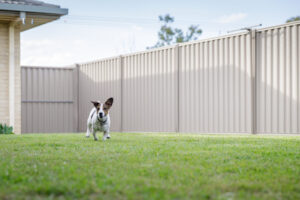
Medial patellar luxation and lateral patellar luxation are some of the most common orthopedic issues dogs face.
Medial Patellar Luxation (MPL) is a common orthopedic condition affecting dogs, particularly small breeds. This condition, which involves the displacement of the kneecap (patella) from its normal position in the knee joint, can lead to pain, lameness, and long-term joint issues if left untreated. Understanding the causes, symptoms, and available surgical treatments for MPL can help pet owners make informed decisions about their dog’s health.
Causes of Medial Patellar Luxation
MPL is often a congenital condition, meaning it is present from birth due to genetic factors. However, it can also be acquired through trauma or injury. Several factors contribute to the development of MPL, including:
- Genetic Predisposition: Certain breeds, such as Pomeranians, Chihuahuas, and Yorkshire Terriers, are more prone to MPL due to their genetic makeup and skeletal structure.
- Conformation Abnormalities: Abnormalities in the alignment of the femur, tibia, or the patella groove can predispose a dog to MPL.
- Injury or Trauma: An accident or injury that impacts the knee joint can lead to MPL, even in dogs without a genetic predisposition.
Symptoms of Medial Patellar Luxation
The symptoms of MPL can vary depending on the severity of the condition, which is typically graded on a scale from 1 to 4, with Grade 1 being mild and Grade 4 being severe. Common symptoms include:
- Intermittent Lameness: Dogs with MPL may exhibit occasional limping or an abnormal gait, especially after exercise.
- Skipping or Hopping: A characteristic skipping or hopping motion in the affected leg is a hallmark sign of MPL.
- Pain or Discomfort: Affected dogs may show signs of pain or discomfort when the knee is manipulated.
- Swelling or Inflammation: In more severe cases, swelling around the knee joint may be noticeable.
- Reduced Mobility: Dogs with advanced MPL may have difficulty walking, running, or jumping.
Surgical Treatment for Medial Patellar Luxation
Surgical intervention is often recommended for dogs with moderate to severe MPL (Grades 2 to 4) to prevent long-term joint damage and improve quality of life. The type of surgery performed depends on the severity of the condition and the specific anatomical abnormalities present.
Types of MPL Surgery
- Trochleoplasty: This procedure involves deepening the groove in the femur where the patella sits, preventing it from dislocating.
- Tibial Tuberosity Transposition (TTT): This surgery repositions the tibial tuberosity, correcting the alignment of the patella.
- Medial Release and Lateral Imbrication: Soft tissue techniques that loosen the medial structures and tighten the lateral ones to stabilize the patella.
- Corrective Osteotomy: In severe cases, the bones of the leg may be realigned to correct the underlying deformities.
Post-Surgical Care
Post-operative care is crucial for a successful recovery. It typically involves:
- Rest and Restricted Activity: Limiting movement to allow the knee to heal properly.
- Physical Therapy: Guided exercises to restore strength and mobility in the affected leg.
- Pain Management: Medications to manage pain and inflammation during the recovery period.
- Follow-Up Appointments: Regular check-ups with your primary veterinarian to monitor healing and ensure the surgery’s success.
Trust Maryland Veterinary Surgical Services With Your Companion’s Health
Your companion’s health is important, and the team at MVSS is ready to provide the best care possible for your furry family. We are dedicated to combining comprehensive exams and assessments with informative and honest discussions of your companion’s care. Once we have worked with you to decide on the best course of action for your dog, our professionals will use their surgical expertise to work towards the goal of giving your companion an active and pain-free life. We are proud to serve loyal companions in Catonsville and Baltimore. To learn more about our services, give us a call at 410-788-4088 or visit us online. For more information and tips for dog health, follow us on Facebook and Pinterest.
